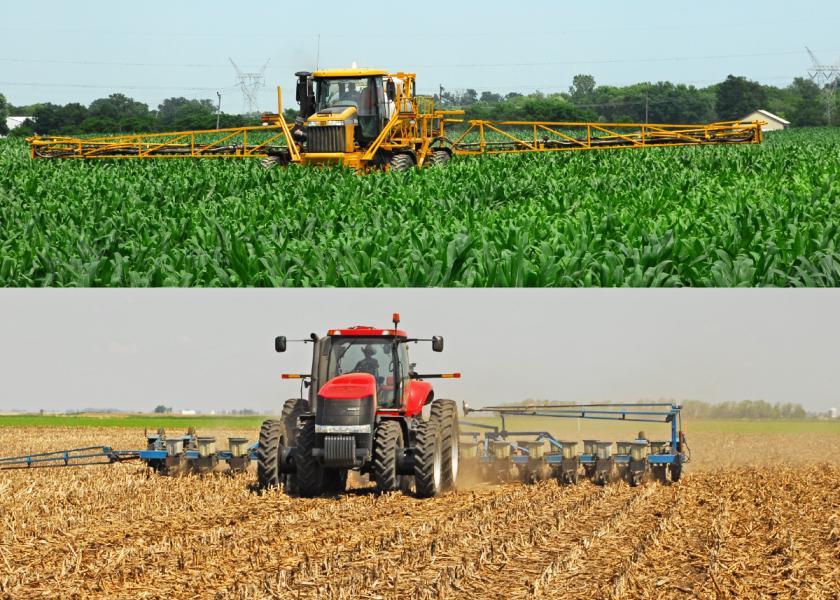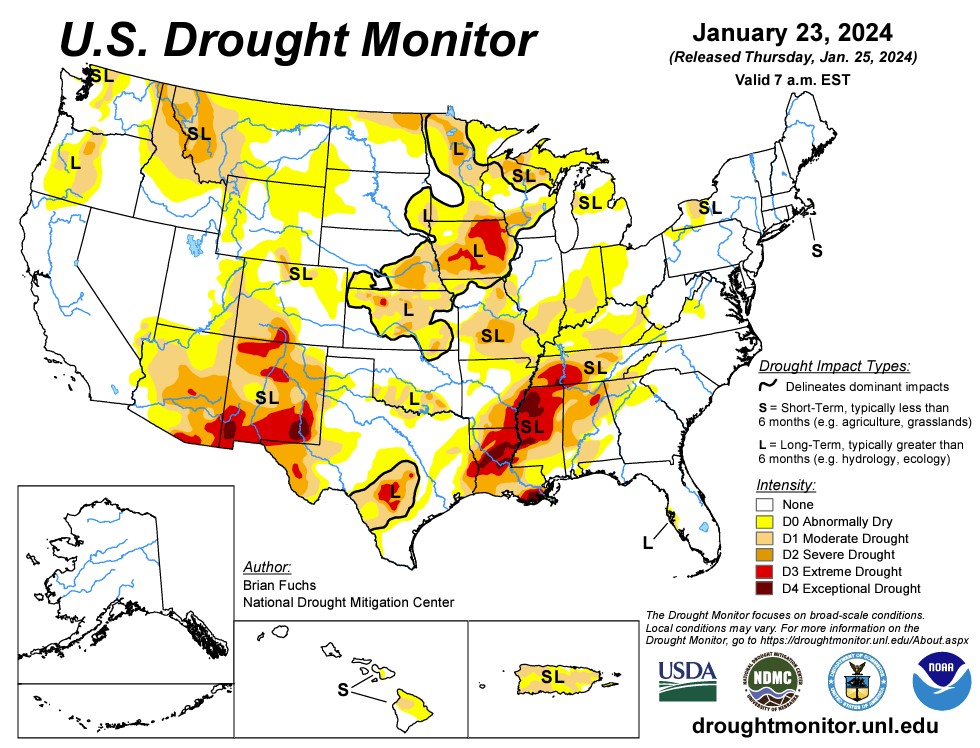Agronomists Worry Moisture Deficits Will Contribute To Herbicide Carryover

Moisture plays a key role in breaking down herbicides present in soils and preventing carryover from impacting crops the following season. When dry soil conditions persist, carryover can become more of a concern, says Meaghan Anderson, Iowa State University field agronomist.
“Even if we get some moisture this winter, I anticipate we’ll have some herbicide carryover issues here in central Iowa this season,” she reports.
More than 90% of Iowa is experiencing extreme dryness or drought, according to the U.S. Drought Monitor released Jan. 25. Plus, nearly one-third of the state is in extreme drought (D3).
Iowa farmers aren’t alone with their water woes. The same edition of the Monitor showed 33% of corn acres and 36% of soybean acres across the U.S. are experiencing some level of drought.

Consider Your Options
While farmers can’t persuade Mother Nature to send more rain, they do have some influence over how impactful herbicide carryover will be this season, according to Ken Ferrie, Farm Journal Field Agronomist.
For starters, he advises corn and soybean growers to look at their crop-rotation restrictions on the herbicides applied last year and the dates when they were applied.
“Pay special attention to those that have 10- to 12-month rotation restrictions – especially if you planted your corn in May or June last year, and you plan to plant your soybeans in April this year,” advises Ferrie, who’s based in central Illinois, south of Bloomington.
Farmers looking to plant soybeans early may want to reconsider, if their fields are at high risk of carryover, Anderson says.
“Herbicide carryover doesn’t usually kill plants,” she adds. “But it can certainly put them under increased stress if they’re sitting in the ground, trying to emerge and get a strong start.”
Another consideration would be to plant soybean varieties that are potentially more tolerant to the herbicide chemistries that were applied in cornfields last season.
“This would be a good conversation to have now with your seed company,” Anderson says. “They may not have published ratings, but they generally know which of their soybean varieties are more susceptible or tolerant to certain chemistries and can give you some guidance on that.”
Go An Extra Step
Ferrie encourages farmers to consider doing a grow-out this winter to assess potential herbicide carryover in fields.
“Go to the fields in question during the next thaw and gather up some soil from the top inch and a half. If there's going to be an application or carryover problem, it's going to be right there at the surface,” he says.
Collect the soil sample by field from potential overlap zones, particularly at the ends of the field or in the corners. Then, bring that soil into a heated shop, spread it out in a pan, plant a seed mixture and water it so you can then evaluate the plant growth.
Ferrie says he likes to use oats, corn and what he calls regular beans in his seed mixture.
“Oats are like the canary in the coal mine – they will show symptoms at a lot lower level (of carryover) than a corn plant and give you an indication of whether there’s herbicide still actively working out there,” Ferrie says.
“If the beans die in your grow-out then you may want to rethink rotating to soybeans in that field.”
Ferrie adds that he realizes doing a grow-out takes time and effort, but he says doing one can help you make valuable crop-rotation decisions now that will save time, money and potential headaches later this spring.
5 High-Yield Farmers Share Their Secrets
9 Keys for Effective Residual Use
Seed Impact Mill Technology Hammers Herbicide-Resistant Weeds







